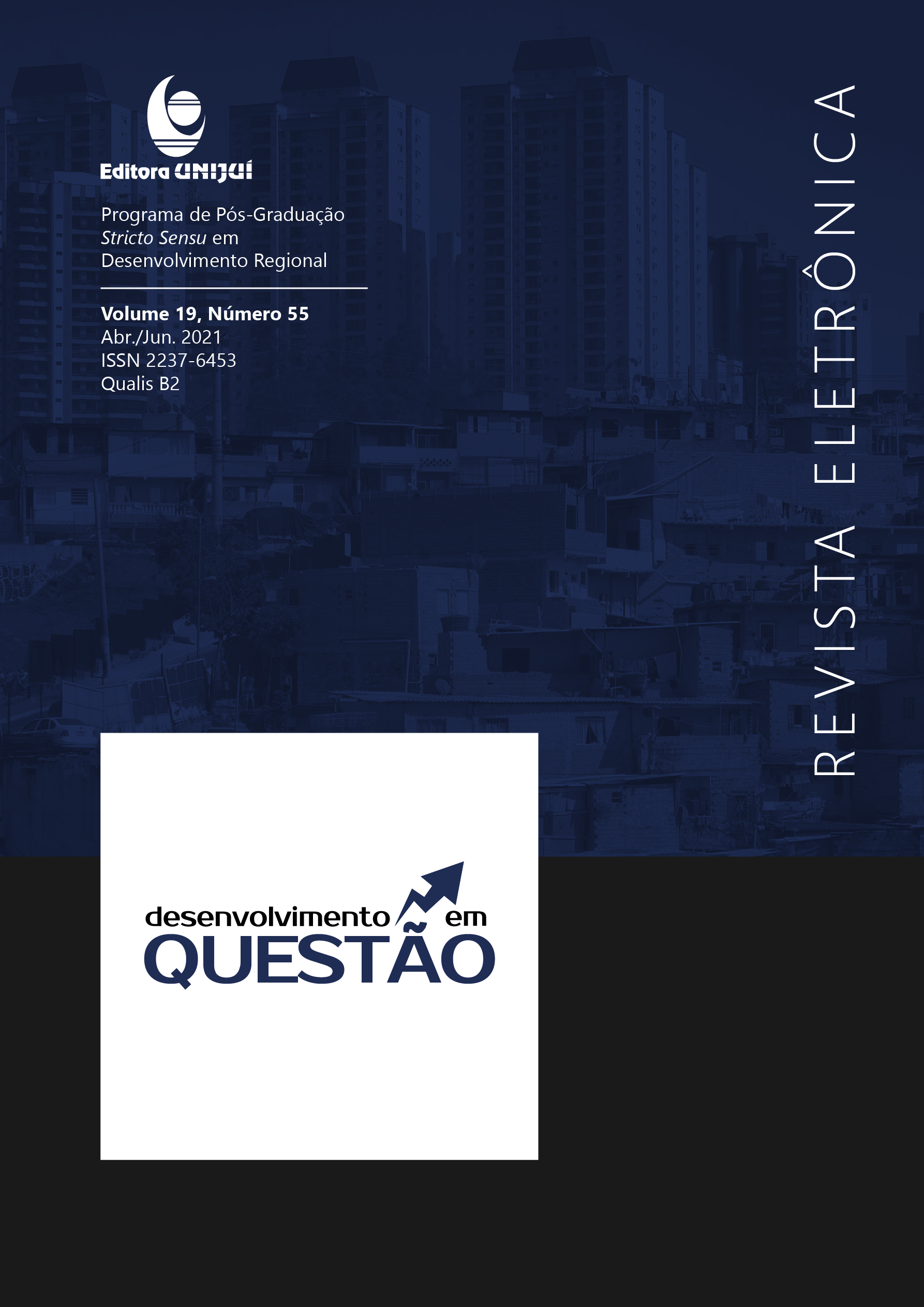Viabilidade Estratégica e Econômica de Práticas Sustentáveis no Departamento de Compras: Estudo de Caso de uma IES Privada no Brasil
STRATEGIC AND ECONOMIC VIABILITY OF SUSTAINABLE PURCHASES
DOI:
https://doi.org/10.21527/2237-6453.2021.55.11501Palavras-chave:
Instituição de ensino superior. Compras sustentáveis. Estratégias sustentáveis. Sustentabilidade. Viabilidade econômica.Resumo
O consumo consciente tornou-se imperativo em sociedades que repensam seu modelo de desenvolvimento. Por exemplo, para uma Instituição de Ensino Superior (IES), que demanda grandes quantidades de materiais, as compras sustentáveis representam uma oportunidade de múltiplos benefícios elencados nas dimensões sociais, ambientais e econômicas. As estratégias sustentáveis de compras, no entanto, podem aumentar a especulação quanto aos efeitos negativos, principalmente aqueles relacionados à parte econômica, fazendo-se necessários estudos que facilitem as tomadas de decisão. Por isso, o objetivo é avaliar a viabilidade estratégica e econômica de práticas sustentáveis no setor de compras de uma IES privada do Brasil. Os resultados mostram a importância de se considerar a sustentabilidade no planejamento estratégico, que deverá estar integrado em todas as áreas da instituição, incluindo o departamento de compras. Pretende-se mostrar, também, que, embora a viabilidade econômica das compras sustentáveis seja fundamental, necessita-se ponderar os impactos econômicos, sociais e ambientais para a instituição.
Downloads
Publicado
Como Citar
Edição
Seção
Licença
Ao publicar na Revista Desenvolvimento em Questão, os autores concordam com os seguintes termos:
Os trabalhos seguem a licença Creative Commons Atribuição 4.0 Internacional (CC BY 4.0), que permite:
Compartilhar — copiar e redistribuir o material em qualquer meio ou formato;
Adaptar — remixar, transformar e criar a partir do material para qualquer fim, inclusive comercial.
Essas permissões são irrevogáveis, desde que respeitados os seguintes termos:
Atribuição — Atribuição — os autores devem ser devidamente creditados, com link para a licença e indicação de eventuais alterações realizadas.
Sem restrições adicionais — não podem ser aplicadas condições legais ou tecnológicas que restrinjam o uso permitido pela licença.
Avisos:
A licença não se aplica a elementos em domínio público ou cobertos por exceções legais.
A licença não garante todos os direitos necessários para usos específicos (ex.: direitos de imagem, privacidade ou morais).
A revista não se responsabiliza pelas opiniões expressas nos artigos, que são de exclusiva responsabilidade dos autores. O Editor, com o apoio do Comitê Editorial, reserva-se o direito de sugerir ou solicitar modificações quando necessário.
Somente serão aceitos artigos científicos originais, com resultados de pesquisas de interesse que não tenham sido publicados nem submetidos simultaneamente a outro periódico com o mesmo objetivo.
A menção a marcas comerciais ou produtos específicos destina-se apenas à identificação, sem qualquer vínculo promocional por parte dos autores ou da revista.
Contrato de Licença (para artigos publicados a partir de 2025): Os autores mantêm os direitos autorais sobre seu artigo, e concedem a Revista Desenvolvimento em Questão o direito de primeira publicação.











